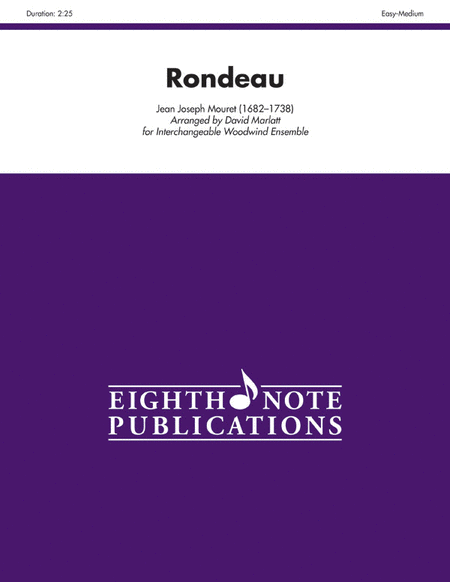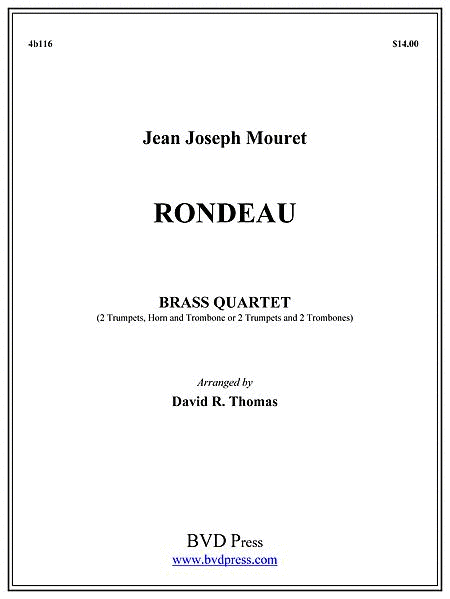Jean-Joseph Mouret (1682 - 1738)
 France
France
 France
FranceJean-Joseph Mouret (April 11, 1682, Avignon - December 22, 1738, Charenton-le-Pont) was a French composer whose dramatic works made him one of the leading exponents of Baroque music in his country. Even though most of his works are no longer performed, Mouret's name survives today thanks to the popularity of the Fanfare-Rondeau from his first Suite de Symphonies, which has been adopted as the signature tune of the PBS program Masterpiece Theatre. Mouret's father was a prosperous silk merchant of ... (Read all)
Source : Wikipedia
Source : Wikipedia
FREE SHEET MUSIC
- Vio Arrange
Active criterias:
Search
| |||||||||||||||||||||||||||||||||||
















 SHEET MUSIC
SHEET MUSIC